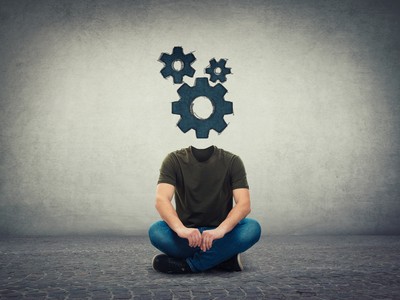
What Is Depression Psychologist Mermaid Beach (07) 5539 9798
Depression Psychologist Mermaid Beach

Introduction: Therapy For Anxiety And Depression Psychologist Mermaid Beach Near Me
Anxiety and anxiety are 2 of the most typical psychological health conditions that individuals deal with today. While they might seem like separate conditions, they are often interconnected and can have a substantial influence on an individual's overall wellness. In this short article, we will check out the connection between stress and anxiety and depression, the symptoms related to each condition, and what actions people can take to handle and get rid of these challenges.
Understanding Anxiety and Depression
What is Anxiety?
Anxiety is a natural action to tension or risk. It is defined by feelings of unease, concern, and fear about everyday situations. While it is typical to experience stress and anxiety from time to time, persistent stress and anxiety can disrupt day-to-day activities and impact one's quality of life.
What is Depression?
Depression, on the other hand, is a state of mind condition that impacts how you feel, think, and manage daily activities. It exceeds regular feelings of sadness or grief and can continue for weeks, months, and even years. Depression can make it hard to function in numerous locations of life, consisting of work, relationships, and self-care.
The Connection In Between Stress And Anxiety and Depression
Anxiety and anxiety typically go together. Lots of individuals who experience stress and anxiety Anxiety And Depression Quotes Psychologist Mermaid Beach likewise struggle with signs of depression, and vice versa. The link in between the 2 conditions can be credited to a number of aspects:
Chemical Imbalance: Both stress and anxiety and anxiety are thought to include an imbalance of neurotransmitters in the brain, such as serotonin and dopamine.
Shared Hereditary Aspects: Research recommends that there may be a hereditary predisposition for developing both stress and anxiety and depression.
Stressful Life Occasions: Distressing experiences or considerable life events can trigger both anxiety and depression symptoms.
Negative Thinking Patterns: Individuals with stress and anxiety tend to have negative thoughts and fret excessively about future occasions. These believed patterns can contribute to the advancement of depression.
Physical Signs: Anxiety and anxiety can manifest with similar physical signs, such as fatigue, sleep disturbances, and modifications in appetite.
Symptoms of Anxiety
Anxiety can manifest in numerous ways and may provide different signs in each person. Some common signs of anxiety include:
Excessive Worry: Relentless and extreme fretting about everyday scenarios, even when there is no evident factor for concern.
Restlessness: Feeling on edge or not able to relax, typically accompanied by physical manifestations like trembling or fidgeting.
Difficulty Focusing: Trouble focusing or remaining present due to racing ideas or preoccupation with worry.
Irritability: Feeling quickly irritated or agitated, in some cases without a clear cause.
Sleep Disruptions: Sleeping disorders or restless sleep due to racing thoughts or worries.
Physical Symptoms: Stress and anxiety can likewise manifest physically, leading to signs such as quick heartbeat, shortness of breath, dizziness, or intestinal issues.
Symptoms of Depression
Depression can vary in seriousness and presentation from person to individual. Some typical signs of anxiety include:
Persistent Unhappiness: Feeling unfortunate, empty, or helpless for a prolonged duration, frequently accompanied by tearfulness.
Loss of Interest: Disliking activities when taken pleasure in and experiencing a lack of motivation.
Changes in Hunger: Substantial weight reduction or gain due to changes in appetite or consuming habits.
Fatigue: Feeling exhausted and lacking energy, even after getting enough sleep.
Difficulty Concentrating: Difficulty focusing, making decisions, or keeping in mind details.
Suicidal Ideas: In serious cases, anxiety can lead to ideas of self-harm or suicide. It is vital to look for assistance if you experience these thoughts.
How to Manage Anxiety and Depression
Managing anxiety and depression needs a comprehensive technique that attends to both the physical and emotional aspects of these conditions. Here are some techniques that can help:
Seek Professional Help: Speak with a psychological health specialist, such as a depression psychologist in Surfers Paradise, who can supply an accurate medical diagnosis and develop a personalized treatment plan.
Medication: Sometimes, medication may be prescribed to assist handle symptoms of stress and anxiety and depression. A certified healthcare provider can identify if medication is necessary.
Therapy: Cognitive-behavioral treatment (CBT) and other evidence-based therapies can assist people identify negative idea patterns, establish coping mechanisms, and enhance general wellness.
Self-Care: Participate in activities that promote self-care, such as routine workout, practicing relaxation strategies (e.g., deep breathing or meditation), guaranteeing appropriate sleep, and maintaining a balanced diet.
Social Assistance: Reach out to pals, family, or support groups who can supply understanding and motivation during tough times.
Avoid Substance Abuse: Substance abuse can worsen symptoms of stress and anxiety and anxiety. It is important to prevent self-medicating with drugs or alcohol.
Frequently Asked Questions
- Anxiety is defined by extreme concern and fear about everyday situations, while anxiety involves consistent feelings of sadness or hopelessness that impact day-to-day functioning.
- Yes, anxiety is considered a mental illness when it hinders daily life and causes significant distress.
- Signs of anxiety in males might consist of irritability, anger or hostility, increased risk-taking habits, substance abuse, or physical symptoms like headaches or gastrointestinal issues.
- While there is no conclusive cure for stress and anxiety and depression, they can be successfully handled and treated with the ideal combination of treatment, medication, and self-care strategies.
- Yes, depression is a mental illness defined by persistent feelings of unhappiness, despondence, and a loss of interest in activities once enjoyed.
- Offer support and encouragement, listen without judgment, and encourage them to seek expert help. Inform yourself about their conditions to much better understand their experiences.
Conclusion
Anxiety and anxiety are intricate conditions that typically exist side-by-side and can substantially impact a person's wellness. Understanding the connection between these two conditions is important for effective treatment and management. By seeking expert help, practicing self-care, and constructing a strong support system, people can take steps towards getting rid of anxiety and depression and restoring control over their lives. Bear in mind that you are not alone in this journey, and there is hope for a brighter future.
Mental Health Depression Psychologist Mermaid Beach
Symptoms Of Depression In Men Psychologist Mermaid Beach Near Me
Isabella Whittingham Registered Psychologist Gold Coast
Surfers Paradise Chiropractic Centre-Dr. Bruce Whittingham
12 Thomas Drive, Surfers Paradise QLD 4217
(07) 5539 9798
https://surfersparadisechiropractic.com.au
Depression And Anxiety Memes Psychologist Mermaid Beach Near Me